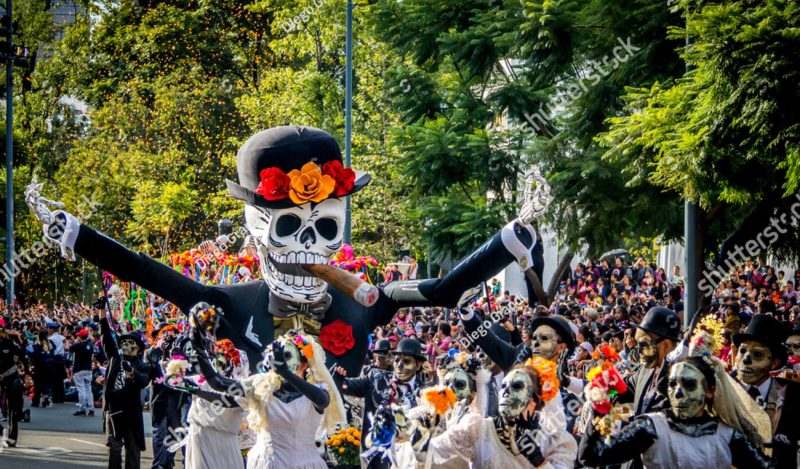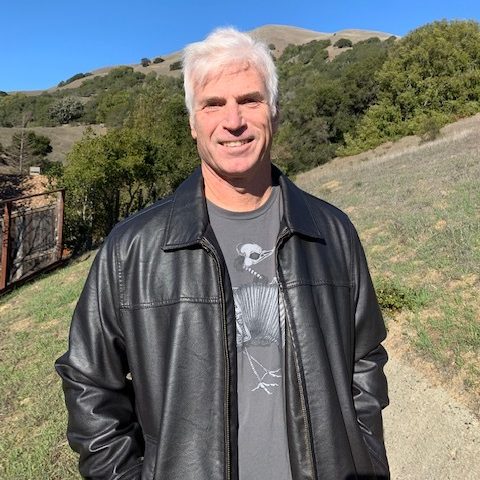Fear is in the air. It’s been hanging like a vile putrescence for the last three years, drifting and changing its shape and expanse, enveloping us with its heavy stench.
In March 2020 fear arrived as the fear of death. Would you catch the virus? Keep your distance. You never know who has it. You could easily die.
During 2021, the cloud of fear morphed into the fear of conformity: should you take the vaccine or not? This partitioned behind two veils of the psyche. Behind one veil was the fear of what might happen to you if you did not comply with pressure from peers and edicts of the state. Fear of lost friendships. A lost job. Behind the other veil was the fear of what might happen to your body and mind if you did comply. Fear of bodily harm. Regret for not standing up for your beliefs and just going along.
And now the cloud of fear has transmuted again into the rise of authoritarianism.
Government censorship caused many to be fearful of their social status. Will you be canceled on social media for speaking your mind?
The bio-security state has seen a massive step-growth since the start of the pandemic, becoming much more visible since 2022. Should you fear the suppression of your medical freedoms? Will you be required to go along with a mandate to take medicines in the future? Will you be required to get on the vax platform?
Government surveillance has stepped up as well. Santa Clara County in California obtained phone records of churchgoers in a particular parish to determine whether they were obeying lockdown restrictions. Do you fear you might be punished by the government for your beliefs?
This has truly been a pernicious and toxic environment of fear.
There are many ways of dealing with fear. The most extreme fear, the fear of death, has many philosophers, religious attention, and age-old stories. As Haley Kynefin relates in an old parable The Boy Who Trapped Death in a Nut, the reaper comes for us all, and living our lives in avoidance of death only inhibits our full life. The story is of an ordinary boy who doesn’t want his mother to die. But by stopping death, he has also stopped life.
There have been several cultures in history that have embraced death as part of life. This is particularly true of warrior cultures, like the Spartans, the Vikings, and the Samurai of Japan.
I particularly like the way that the Samurai handled the fear of death: it was a form of exposure therapy. They did this by trying to envision the form of their deaths in all its detail. It is often called a death meditation. They would sit still and meditate on how exactly they would fight when the final moment arrived. How they would show themselves to be brave in their last breath. How they would show their loyalty. How every second of the last battle would play out.
The Samurai did not do this in order to think of ways to get out of their imminent death. On the contrary, they expected death. They wanted to deal with the fear of their certain death.
Three hundred years ago, a famous Samurai turned philosopher, Yamamoto Tsunetomo, wrote in Hagakure:
Meditation on inevitable death should be performed daily. Every day when one’s body and mind are at peace, one should meditate upon being ripped apart by arrows, rifles, spears and swords, being carried away by surging waves, being thrown into the midst of a great fire, being struck by lightning, being shaken to death by a great earthquake, falling from thousand-foot cliffs, dying of disease or committing seppuku at the death of one’s master. And every day without fail one should consider himself as dead.
The result of this meditation is that the Samurai were unafraid to die. Death is inevitable, and contemplating the precise form of this inevitability removes the fear.
I applied this technique to great effect recently as I underwent hip replacement surgery. I know, I know. I had a 0.3 percent chance of death. This is hardly the risk faced daily by a Samurai. But I was nervous, very nervous. I put off the surgery for many months, thinking that I might be able to overcome the ever-increasing pain. “Bone on bone,” the doctor said. “It can’t get any worse. It’s just a matter of how much pain you can take.”
Finally I had enough, and I decided to go through with the surgery. But this did not alleviate my fear. I had never been under the knife before, and ignoring the miniscule chance of death did not seem possible. Not being able to ignore it, and not being able to accept it, I tested the way of the Samurai. I began to envision precisely how I would die and what it would mean.
Believe me, the friends I told this story to thought I was crazy. I did manage to get a lot of laughs. But what did it accomplish?
I imagined for myself various deaths. The first one, quickly, under the knife. I am sedated and have no opportunity to feel anything. My preparation here included deep thought about what would happen to my family. Of course, I have life insurance, but I thought, what about that moment and the next few days? What would they experience?
So I sat down, and I wrote some basic instructions, some love letters, and even some apologies. All with instructions to open them if the worst case came to pass. Again, what did that accomplish?
Remarkably, I felt at ease when I went into the day of surgery. I was entirely focused on what I needed to do, and relaxed in the prep room when I got there. It also changed my daily mindset in the month leading up to the day of surgery. I avoided undue conflict with family and friends, literally shedding irritations and stress. The Samurai method worked!
This attitude and practice can help us with other facets of life, not just in facing death. It can help us deal with other fears as well. Let’s revisit the cloud of fear that has descended in the past few years.
I’ll skip over fear of death from the virus; that’s as much a mental exercise as my fear of death from hip surgery (look up the percentages). How about the ones we face right now: fear of censorship, fear of government surveillance, fear of mandated medicine? These have all suddenly become very real possibilities; indeed, these have happened to many people already.
Applying the Samurai way to these fears, what must we do?
As the Samurai have schooled, we must completely envision all of the details of what a “death” might mean, and engage in a death meditation. What would you do if they shut down your ability to speak? What would you do if you were harassed by government agencies? What would you do if you were ostracized from society? Will you be forced to take medicines you don’t want? Will your friends and family reject you? Will you lose your job?
We cannot control whether these things will happen to us or not. We can try to hide, run away, or otherwise check out, but that control is not ours to wield. What we can do is control our fear. Let’s try a death meditation for authoritarianism.
Envision your death by suppressed speech – How your words will be censored. How your ideas and beliefs will be slandered. How friends will shout you down and refuse to listen.
Envision your death by mandated medicine – How your employer will require that you be vaccinated in order to work. How you will be unable to travel without showing proof of compliance. How your children will be denied entry into public school without having updated boosters, regardless of safety considerations.
Envision your death by authoritarian rule – How you will be disallowed from participating in society for refusing to comply with arbitrary diktats. How your movements will be tracked and your personal connections investigated. How you will be manipulated to turn against your family and friends.
If we hold these concepts in our minds and truly believe that they could happen tomorrow, how would our actions change? How would our attitudes change?
The Samurai faced real physical danger every day of their lives. It seems natural that they would develop a code to deal with death. Maybe we don’t need meditation for death. Maybe we need a meditation on the fear of authoritarianism, and thus garner the courage to carry on.
Envision your death – and be unafraid to speak, to fight, and to live.
Join the conversation:


Published under a Creative Commons Attribution 4.0 International License
For reprints, please set the canonical link back to the original Brownstone Institute Article and Author.









